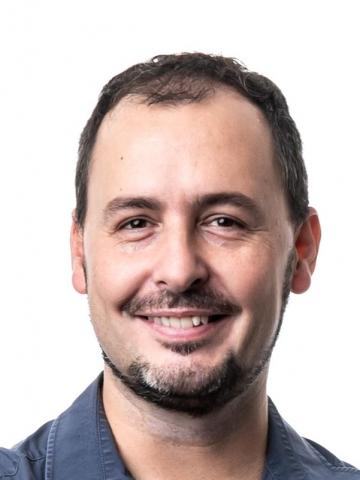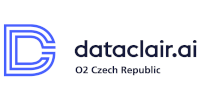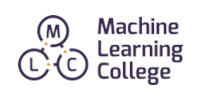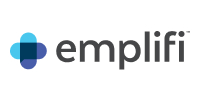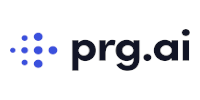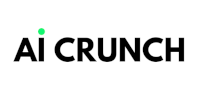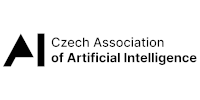The 11th international conference on Machine Learning and Artificial Intelligence applications,
taking place in person in Prague and online.
Machine Learning Prague 2026
– , 2026
RegistrationWorld class expertise and practical content packed in 3 days!
You can look forward to an excellent lineup of 45 international experts in ML and AI business and academic applications at ML Prague 2026. They will present advanced practical talks, hands-on workshops, and other forms of interactive content to you.
What to expect
- 1000+ Attendees
- 3 Days
- 45 Speakers
- 10 Workshops
Phenomenal Confirmed speakers
Would you like to present a research poster to 1,000+ attendees? Apply using this form before March 22nd, 2026.
Practical & Inspiring Program
Friday
Workshops
O2 Universum, Českomoravská 2345/17a, 190 00, Praha (workshops won't be streamed)
Registration from 8:00
Room D2
Filip Kojan, O2/Dataclair
This workshop offers a comprehensive introduction to geospatial data processing tailored for beginner and intermediate machine learning practitioners. Participants will explore essential concepts including spatial data types coordinate reference systems and projections as well as core operations for analyzing and manipulating geospatial information. You will see how geospatial data can be integrated into machine learning workflows through feature engineering and spatial analysis. Additionally visualization techniques will be covered to help interpret and communicate geospatial data.
Room D3
Adir Gozlan, Amazon
In this highly practical workshop participants will experience end-to-end training of a small-scale language model using Amazon SageMaker HyperPod a cutting-edge distributed training environment purpose-built for large foundation models. With growing interest in domain-specific and lightweight LLMs this session will bridge the gap between theoretical knowledge and applied training workflows on modern cloud infrastructure. Participants will leave with a reproducible cloud-native setup and hands-on familiarity with distributed LLM training — from resource allocation to performance tuning. We will emphasize how to make small models perform competitively using techniques like LoRA quantization and mixed-precision training.
Room D4
Ludek Matyska, Rouvy
Modern interaction with large language models often ends with a plea: “please don’t hallucinate.” This workshop revisits the foundations of machine learning and shows how they remain essential in the era of generative AI. Participants will learn to work with the probabilistic structure that LLMs expose using token-level log probabilities to build classifiers evaluate uncertainty and detect hallucinations. Through practical examples we demonstrate how classical ML techniques such as calibration fine-tuning and systematic testing can produce reliable verifiable outcomes. Rather than treating LLMs as black boxes to be prompted we treat them as probabilistic learners to be measured — because when a model hallucinates the answer is not to beg it but to calibrate and test it.
Room D6
Nadzeya Laurentsyeva, Sanofi
This hands-on workshop shows how to draw credible causal insights when RCTs aren’t feasible. Using a people-analytics case on employee training - with both a staggered rollout and a voluntary global rollout - we walk through the full pipeline: design identification choice estimation and stakeholder communication. We cover Differences-in-Differences Instrumental Variables and Regression Discontinuity; build Directed Acyclic Graphs to formalize assumptions; and implement Generalized Estimating Equations Coarsened Exact Matching and Double Machine Learning. We also use Causal Forests to surface heterogeneous effects giving practitioners a robust end-to-end toolkit for impact evaluation in real organizational settings.
Room D7
Adam Jurčík, Seznam.cz
This workshop introduces participants to the fundamentals and practical techniques of graph anomaly detection. Blending conceptual overviews with a hands-on lab the session teaches how to represent real-world systems as graphs engineer meaningful features and apply a range of detection methods to identify unusual nodes edges or communities. We will provide a concise overview of modern GAD methods categorized into the following families: Traditional Methods Embedding-Based Methods and Graph Neural Network (GNN).
Room D2
Roman Dušek, Bloomreach
While contextual bandits excel at selecting one optimal item real-world optimization requires solving for complex multi-slot layouts. This workshop equips practitioners with the intuition to identify the right use cases for conditional bandits and the practical skills to run them without needing heavy online infrastructure. We will explore how to implement offline contextual bandits to solve scenarios ranging from multivariate page optimization to list ranking. Participants will work through Jupyter notebooks to implement solutions using both synthetic and historical datasets grounding these concepts in reality. Crucially we will address the most challenging aspects of the bandit lifecycle: ensuring the accuracy of your logging data and strictly applying Off-Policy Evaluation (OPE) to validate performance before deployment. By the end of the session you will be able to prove the value of slate bandits and start introducing step-by-step changes to your existing systems.
Room D3
Elad Ben-Zaken, Dream
Large Language Models (LLMs) such as GPT Claude and Grok have transformed the landscape of AI but using them effectively for specific real-world tasks often requires more than prompt engineering. Fine-tuning task-specific adaptation and efficient training strategies are essential to unlock their full potential. This workshop is designed for advanced practitioners who want to go beyond using LLMs as generic assistants and learn how to systematically adapt them to rule a particular domain or task. Over the course of 3 hours participants will gain practical hands-on experience in training and adapting LLMs. Starting with a pre-trained foundation model we will walk through the full pipeline of dataset preparation fine-tuning evaluation and deployment. Attendees will bring their laptops and work along implementing techniques directly in code.
Room D4
Karolina Cynk, CERN
This technical workshop explores the construction of ML-based investment strategies using fundamental data. Participants will implement the full pipeline from feature engineering to realistic backtesting with the open-source library qf-lib. The session addresses practical challenges such as data lag alignment universe selection and mitigating look-ahead bias.
Room D6
Michal Šustr, FEE CTU
Modern GPUs keep getting faster each generation enabling ever larger training and inference workloads. But in many real-world applications GPU compute is no longer the slowest part: I/O and data movement are. This workshop teaches a practical systematic approach to diagnosing and eliminating data-loading bottlenecks. Participants will learn how to design high-throughput data pipelines for both training and inference. By the end of the session attendees will be equipped with techniques that typically yield 10% to 500% pipeline speedups — often without touching the model architecture at all.
Room D7
Jan Kislinger, Sky Czech Republic
Generative AI has revolutionized content creation but what if we use it to generate the entire recommendation experience itself? In this workshop we explore how generative models can go beyond tagging or summarizing content to compose full recommendation pages. Participants will build prototypes that generate coherent page layouts using autoregressive models that attend to previously generated tiles. We will connect traditional recommenders with new generative methods to show how to move from ranking individual items to creating personalized experiences end to end.
Room D2
Room D3
Room D4
Room D6
Room D7
–
coffee break
–
From Maps to Models: Hands-On Geospatial Data Processing for Data Scientists
Ondřej Karlíček, O2/Dataclair
Train a Small Language Model with SageMaker HyperPod
Mayank Gupta, Amazon
Probabilities Over Prompts: How to Stop Begging and Start Modeling
Vojtech Kadlec, STRV
From Prediction to Impact: Machine Learning Meets Econometrics for Causal Inference in Organizations
Luděk Stehlík, Sanofi
Ivan Ushakov, Sanofi
Graph-Based Anomaly Detection: Methods and Hands-On Implementation
Jakub Chynoradský, Seznam.cz
Jaroslav Kuchař, Seznam.cz
Marek Šrank, Seznam.cz
–
–
coffee break
–
Beyond Single Decision: A Practical Tutorial on Slate Bandits
Manikanth Reddy Gonchi, Bloomreach
From Zero to Task-Master: Hands-On Fine-Tuning of Large Language Models for Specialized Applications
Oded Ovadia, Dream
Building and Backtesting ML Investment Strategies
Adam Karasek, CERN
Find the Bottleneck: Speed Up ML Pipelines by 10%–500%
Recommender Systems in the Age of Generative AI
Saturday,
Workshops
O2 Universum, Českomoravská 2345/17a, 190 00, Praha (and on-line)
Registration from 9:00
Welcome to ML Prague 2026

Inference in the Wild: Real Lessons on Scaling LLMs for Big Data
Shaul Cohen, Similarweb
The Myth of the Optimal Configuration — And What 300,000 Benchmarks Really Taught Us
Shani Alisar, Red Hat
Risks of Implementing AI/ML Systems: From Classic Vulnerabilities to New Attack Vectors
Aleksandra Kowalczuk, AccentureLUNCH & POSTER SESSION

Our Technical Journey from Simple RAG to Enterprise AI Agents
Alexandr Vendl, O2/Dataclair
Evaluating AI Agents: Lessons from Automating Code Security
Tomas Dulka, Aisle
Stop Stuffing Tools into Context: MCP Code Mode in the Shell
Jan Čurn, ApifyCOFFEE BREAK

Toward Human-Centered Physical AI
Yi-Ting Chen, National Yang Ming Chiao Tung University
AI for Defense Resilience: Real-Time National Information Defense at Scale
Ethan Tu, Taiwan AI Labs
The Future Lives at the Edge
Albert Liu, Kneron Inc.COFFEE BREAK

Enzyme Discovery Using Machine Learning
Ariane Mora, AITHYRA, ex Caltech
Decoding the Chemical Universe of Plants
Tomas Pluskal, Institute of Organic Chemistry and Biochemistry of the Czech Academy of SciencesNETWORKING & DRINKS
Sunday,
Conference day 1
O2 Universum, Českomoravská 2345/17a, 190 00, Praha (and on-line)
Doors open at 08:30

Why Good Models Fail After Deployment
Oleksandr Pyvovar, Meta
Practical Improvements to Sequential Recommendations for Search Reranking at Bloomreach
Manikanth Reddy Gonchi, Bloomreach
Building Proprietary Transformers at Scale: The Good, The Bad, and The AWS Bill
Radek Svoboda, Rankacy AICOFFEE BREAK

Real-Time Digital Avatars for Online Entertainment
Weipeng Xu, Valka.AI, ex Meta
Face Recognition in the Real World
Jan Stratil, Innovatrics
3D Reconstruction for Holograms
Rudolf Jaksa, MatsukoLUNCH & POSTER SESSION

Contrastive Forecasting: Latent-Space Prediction for Time Series via Joint Embedding
Jeremy Cochoy, Redstone Solutions
Building SOTA Text and Multimodal Embedding Models
Yauhen Babakhin, NVIDIA
Hybrid Search with AI Embeddings — From Theory to Production
Tomáš Rokos, BigHubCOFFEE BREAK
BUSINESS APPLICATIONS TRACK
CLOSING REMARKS
Have a great time Prague, the city that never sleeps
You can feel centuries of history at every corner in this unique capital. We'll invite you to get a taste of our best pivo (that’s beer in Czech) and then bring you back to the present day at our networking event.

Venue ML Prague 2026 will run hybrid, in person and online!
The main conference as well as the workshops will be held at O2 Universum.
We will also livestream the talks for all those participants who prefer to attend the conference online. Our platform will allow interaction with speakers and other participants too. Workshops require intensive interaction and won't be streamed.
Conference building
O2 Universum
Českomoravská 2345/17a, 190 00, Praha 9
Workshops
O2 Universum
Českomoravská 2345/17a, 190 00, Praha 9
Now or never Registration
Early Bird
Sold Out
-
Conference days € 290 + VAT
-
Only workshops € 230 + VAT
-
Conference + workshops € 490 + VAT
Standard
75 Registrations Left
Late
Until sold out
-
Conference days € 350 + VAT
-
Only workshops € 290 + VAT
-
Conference + workshops € 590 + VAT
What You Get
- Practical and advanced level talks led by top experts.
- Networking and drinks with speakers and people from all around the world.
- Delicious food and snacks throughout the conference.
They’re among us We are in The ML Revolution age
Machines can learn. Incredibly fast. Faster than you. They are getting smarter and smarter every single day, changing the world we’re living in, our business and our life. The artificial intelligence revolution is here. Come, learn and make this threat your biggest advantage.
Our Attendees What they say about ML Prague
Thank you to Our Partners
Strategic Partners
Platinum Partners
Gold Partners
Communities and Further support
Would you like to present your brand to 1000+ Machine Learning enthusiasts? Send us an email at info@mlprague.com to find out how to become a ML Prague 2026 partner. Our basic partnership offer can be found here.
Happy to help Contact
If you have any questions about Machine Learning Prague, please e-mail us at
info@mlprague.com
Organizers

Jiří Materna
Scientific program & Co-Founder
jiri@mlprague.com

Teresa Pulda
Event production
teresa@mlprague.com

Gonzalo V. Fernández
Marketing and social media
gonzalo@mlprague.com

Jona Azizaj
Partnerships
jona@mlprague.com

Ivana Javná
Speaker support
ivana@mlprague.com

Barbora Toman Hanousková
Communication
barbora@mlprague.com
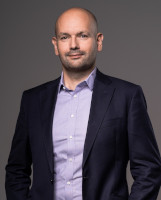
Jan Romportl
Moderator






